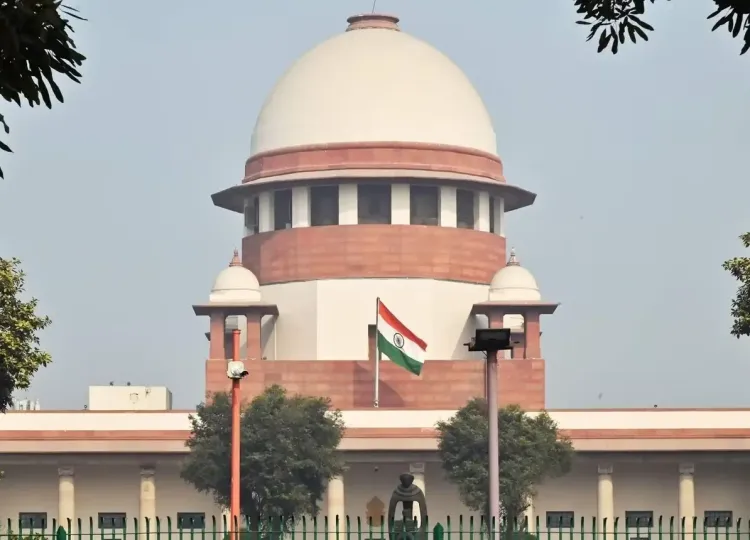What Measures is the SC Taking to Ensure Timely Upload of Reasoned Judgments?

Synopsis
Key Takeaways
- The Supreme Court mandates timely uploading of reasoned judgments.
- Delays in the judicial process can undermine public confidence.
- Guidelines from the Anil Rai case are reiterated for compliance.
- High Courts are urged to avoid unnecessary delays.
- Judicial accountability is crucial for maintaining integrity.
New Delhi, Sep 9 (NationPress) The Supreme Court has mandated that High Courts nationwide must promptly upload reasoned judgments following the announcement of operative orders.
A panel of Justices J.B. Pardiwala and Sandeep Mehta expressed that the delay is a matter of serious concern, highlighting a scenario where the Punjab and Haryana High Court issued its ruling on February 18, 2016, yet did not upload the complete judgment until July 18, 2018 — a delay spanning approximately two years and five months.
“Over time, certain High Courts have developed a practice of announcing the operative portion of a ruling without the accompanying reasoned judgment, which is later uploaded after a significant period. This practice has been criticized by this court in numerous rulings and orders,” observed the Justice Pardiwala-led Bench.
Referring to the apex court's prior decision in Anil Rai v. State of Bihar, it stated: "Delays in case resolutions can lead to public skepticism, which, if unresolved, may undermine the trust in the judicial system. The judiciary's esteemed reputation cannot be tarnished due to the shortcomings of a few."
The Supreme Court has instructed that its ruling be disseminated to all High Courts, reiterating the principles established in the Anil Rai case that require timely delivery of judgments.
“We hope not to encounter scenarios where High Courts experience delays in uploading reasoned orders, especially following the announcement of the operative judgment,” the bench remarked.
In a prior session in August, Justices Sanjay Karol and Prashant Kumar Mishra had expressed grave concern regarding prolonged delays by High Courts in issuing judgments post-hearings, cautioning that such circumstances deteriorate litigants’ confidence in the judicial process.
The Justice Karol-led Bench noted that it frequently deals with cases where proceedings are pending in the High Courts for over three months, with some lingering for six months or even longer.
While concluding a special leave petition (SLP) regarding a criminal appeal that has been in limbo since 2008 in the Allahabad High Court, the apex court deemed it “extremely shocking and surprising” that a judgment was not provided for almost a year after the appeal was heard.







